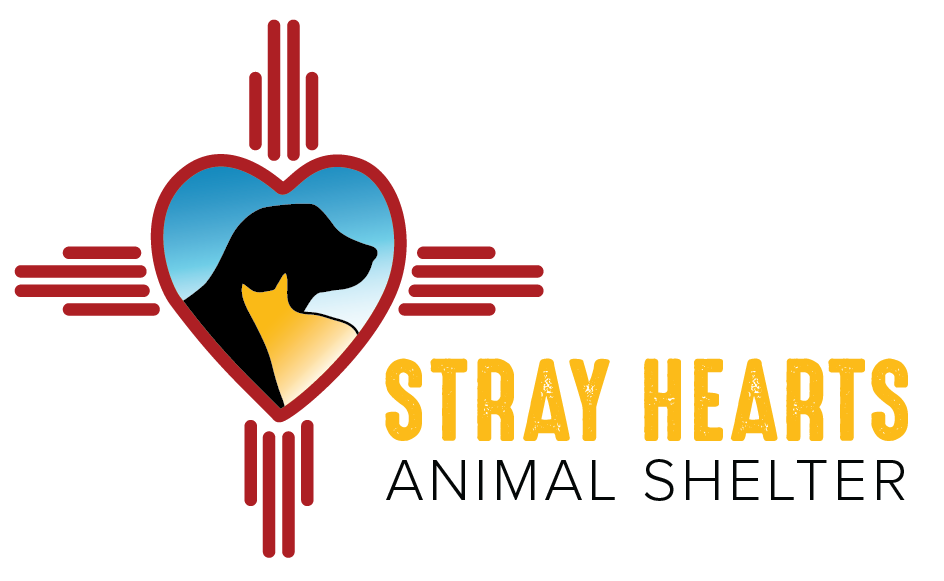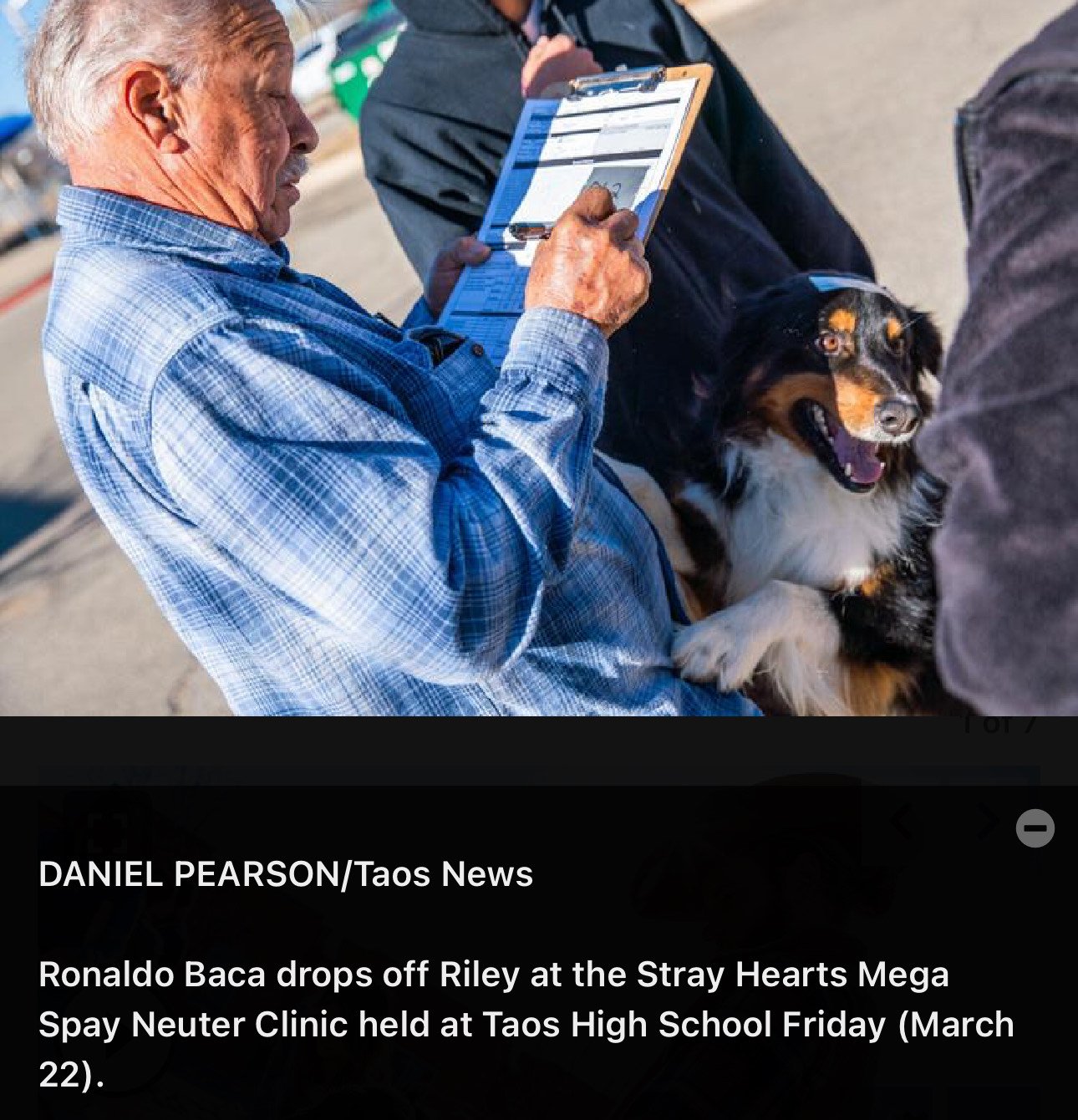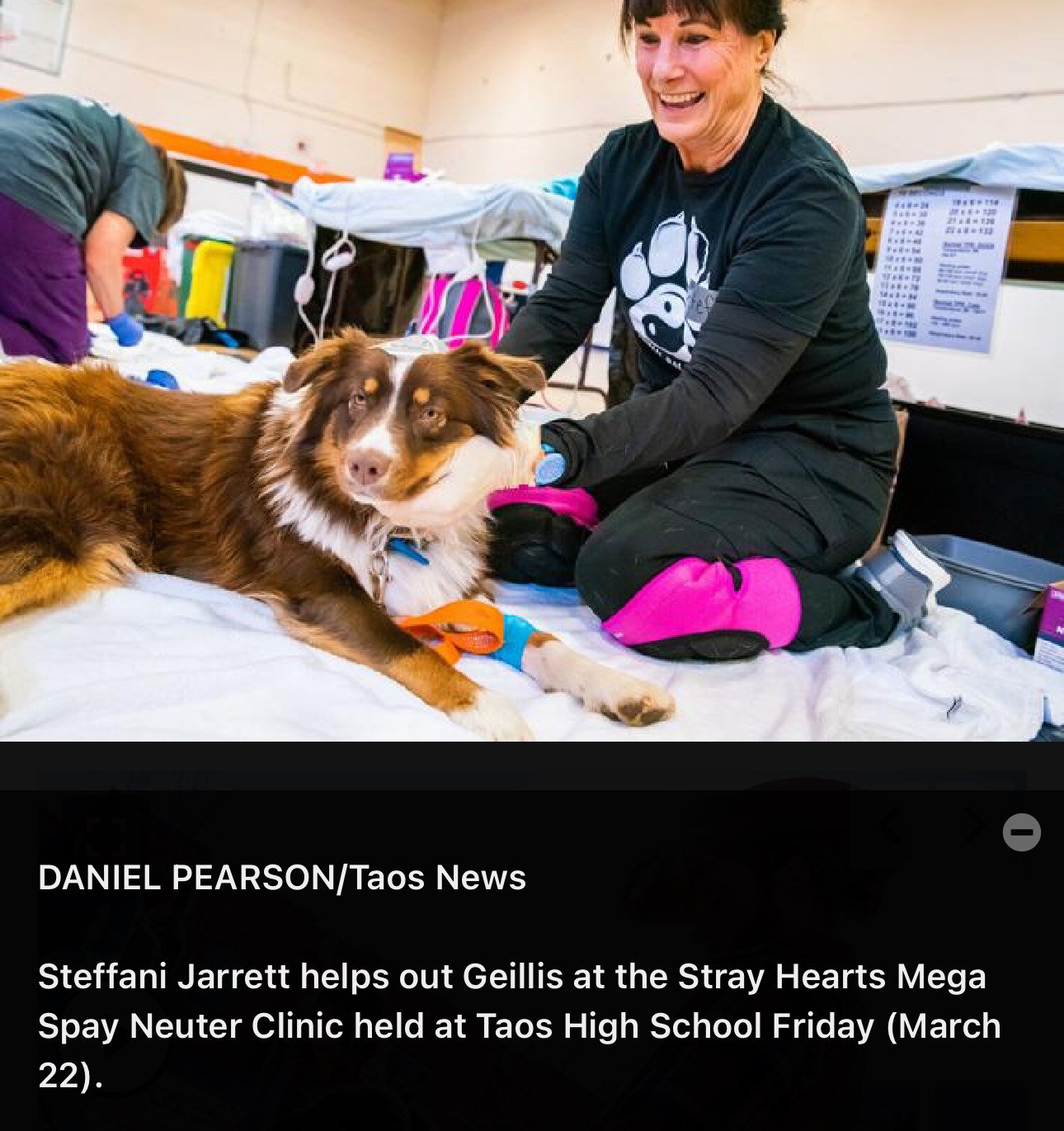Tails from the Shelter 2024
HUNDREDS ATTEND STRAY HEARTS FREE SPAY/NEUTER WEEKEND, MARCH 22-24, 2024.
Reprinted from Taos News March 29, 2024 by Liam Easley.
While students and staff were away on spring break this past week, dozens of pet owners crowded the gymnasium at Taos High School to take advantage of a free spay-neuter event organized by Stray Hearts Animal Shelter from Friday through Sunday (March 22-24).
A total of 202 animals were fixed over the weekend, part of the shelter's efforts to improve animal control efforts after Taos County's stray population surged last year.
The event also provided free vaccinations, microchips and parasite treatment for Taos County pets. Participants applied for a spot in the event, and while it only had the capacity to service 200 animals, they had over 600 applicants, according to Stray Hearts Director Jason Knowles. Thirty-five of those slots were designated for Picuris and Taos Pueblo tribal members, he said.
Knowles said local residents were grateful for the free services, which are critical to prevent animals from breeding freely or from getting lost in a rural area where dogs and cats can stray far from their owners, sometimes never to be found.
While microchips cost around $10, other services such as flea and tick treatment can cost much more. According to the Salazar Road Veterinary Clinic online pharmacy, one pack of six flea and tick chewables for either dogs or cats can cost anywhere from $200 to nearly $400.
According to Forbes, a spay or neuter operation for a cat can cost anywhere between $100-150, but the same operation for a dog can cost up to $600.
Knowles credited the entire community for helping to organize and pull off the event. He partnered with Animal Balance, a global nonprofit that hosts clinics around the world. Knowles said their basic contract provides services for 200 animals over three days. However, the group has executed much larger operations, including 6,000 animals in the Bahamas over a period of eight days in January known as “Operation Potcake.”
With the basic contract, Animal Balance brings three to four veterinarians to perform spay and neuters, six anesthesia and vet techs, and a volunteer force of their own. There were 15 volunteers from the organization, along with 15 volunteers from Stray Hearts at Taos High over the weekend.
Knowles said he was attracted to Animal Balance because of its pay-as-you-go business model. Because Animal Balance comes with staff, volunteers and equipment, Knowles said it would be more efficient and less risky than if they were to resort to more traditional methods — like a mobile spay/neuter van or a brick and mortar veterinary clinic. Knowles said these traditional methods complete 30 spay-and-neuters a day, whereas Animal Balance achieves 70 per day.
A total of 71 animals — 32 cats and 39 dogs — were serviced on Friday alone starting early in the morning. According to a study from the Spay-Neuter Assistance Program, a charity that focuses on spaying and neutering stray dogs and cats, one un-spayed female dog can produce 508 puppies over the span of seven years. The same study found that one un-spayed female cat can produce almost 5,000 kittens in the same amount of time.
“Instead of being a warehouse for animals with too many animals and too many employees, not really being able to keep up monetarily with a budget of $2.2 million, we made the switch from that to trying to figure out how we could be beneficial to the community,” said Page Sullivan, the president of the shelter’s board of directors.
Knowles said the shelter hopes to host more spay-neuter events in the future for Taos County residents.
“We know that there are animals out there in the community that are strays,” Knowles said. “The focus seems to be a knee-jerk reaction: ‘I’m going to help this dog that I see walking across the road.’ That makes total sense to me, but you’re going to spend the rest of eternity taking care of rescues unless you stop and you address the root causes of what’s creating all of these animals in the community.”
To boost adoption rates, the shelter hired a behavioral trainer who works with animals to make them easier to adopt. In February, the shelter adopted out 18 dogs and 16 cats, and three animals were returned to owners. However, Knowles said Taos is a community where most locals are often at the maximum capacity for pets. He often hears people say they cannot adopt another dog or cat because they are comfortable with the amount they already have.
“What we need is the community to have a better vision of us,” Sullivan said. “It was so negative and hostile for a while because we weren’t able to take animals in because we were so beyond capacity. There have been a lot of misunderstandings with the community, but that seems to be turning around.”
According to Sullivan, the shelter currently has a capacity of 50 animals, and as of Friday (March 22), they were housing 52 animals. They accept intakes as space opens up. Knowles said the shelter is taking intakes on a very small scale at this point in time.
Those interested in dropping off an animal can call the shelter and be placed on a waiting list.
For more information, visit strayhearts.org.
email jason@strayhearts.org with any questions, if you wish to volunteer, or want to learn about sponsoring more of these clinics.
Jason Knowles
Executive Director, Stray Hearts Animal Shelter








